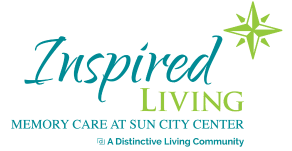Key Takeaways
- The FAST Scale is a 7-stage tool that helps track functional changes associated with dementia.
- It provides families with a clearer understanding of what to expect as dementia progresses.
- The scale is a helpful guide for planning and making decisions about future care needs.
- Understanding the stages to help determine when options like memory care are appropriate.
When you’re supporting a loved one with dementia, understanding the changes they are experiencing can feel overwhelming. It’s natural to want a clear way to see what’s happening and what may come next. The FAST Scale provides a helpful framework for families and care providers.
The Functional Assessment Staging Test (FAST) is a tool used to understand the progression of dementia by focusing on a person’s ability to perform daily activities. It offers a roadmap to help anticipate needs and plan for supportive care, making the journey a little more predictable.
What Is the FAST Scale & Why Is It Used?
The FAST Scale is a guide that outlines the progression of dementia in 7 stages. It focuses on a person’s ability to manage daily tasks, which provides a practical view of the changes they are going through.
The FAST approach helps families and caregivers understand what to expect and how to offer the right support.
A Look at Its Purpose
The scale gives families a shared language to talk about the changes they see. It provides a 7-stage framework that tracks functional abilities over time. It’s often used for Alzheimer’s disease, but can offer insights for other forms of dementia as well.
How Is the FAST Score Used?
A person’s score on the scale corresponds to a stage, which helps guide conversations about the level of support they might need.
Understanding the stage provides a helpful guide for making decisions about future care, including when to explore options like specialized memory care programs or short-term respite care in a senior living community.
The 7 Stages of the FAST Scale Explained
The FAST Scale is divided into 7 distinct stages. The early stages describe very subtle changes in function. The later stages show an increasing need for assistance with everyday life.
Stage 1: No Visible Symptoms
- No noticeable changes in memory or daily functioning
- The person remains fully independent
Stage 2: Mild Forgetfulness
- May mention misplacing items or having trouble finding the right word
- These signs are very subtle and often not apparent to others
Stage 3: Subtle Cognitive Changes
- Family or coworkers may notice challenges with complex tasks, like organizing an event
- Difficulty with planning or problem-solving may start to appear
Stage 4: Noticeable Decline in Daily Tasks
- Your loved one may need help with more complex activities, such as managing finances
- Basic personal care is typically not yet affected at this stage

Stage 5: Increasing Dependence
- Your loved one may need some assistance choosing appropriate clothing for the day
- Individuals may experience memory gaps about important personal information
Stage 6: Advanced Symptoms and Need for Support
At this stage, a person requires help with basic activities of daily living. The progression generally happens in this order:
- Difficulty dressing without some help
- Trouble with bathing, such as adjusting the water temperature
- Challenges with the mechanics of using the restroom
- Urinary incontinence
- Fecal incontinence
Stage 7: Full Care Needed
In the final stage, an individual depends on others for all aspects of their care. You can get a clearer picture of what this supportive environment looks like by learning about a day in the life at a memory care community. The changes often happen in the following sequence:
- Speech becomes limited to only a few words
- Vocabulary reduced to a single understandable word
- Loses the ability to walk without assistance
- Cannot sit up without support
- Losing the ability to smile
- Cannot hold their head up independently
Navigating the Stages and Progression
Knowing how a person moves through the FAST scale can help you prepare for what’s ahead. Every person’s journey is their own. But the progression is often predictable, which can be a comfort.
Can a Person Skip Stages on the FAST Scale?
For individuals with Alzheimer’s, movement through the FAST Scale stages typically happens in order. If you notice stages appearing out of order, other health conditions may be present. It’s always a good idea to discuss any new changes with a healthcare professional.
When to Consider More Support
As a loved one progresses into the later stages—usually stages 5 through 7—their need for daily support grows. Identifying these noticeable changes is often when families begin to recognize the signs that it’s time for memory care.
As these needs increase, it’s also essential for caregivers to be mindful of their own well-being and watch for symptoms of caregiver stress. A supportive senior living environment can provide a setting designed for everyone’s well-being.
How the FAST Scale Helps Families & Caregivers
The FAST Scale is more than just a clinical assessment—it is a practical guide for caregivers and their families. It helps turn uncertainty into a more actionable plan. It does this by clarifying what kind of support might be helpful next.
Anticipating Future Needs
By understanding the typical progression, you can proactively plan for what comes next. You can prepare for care changes before they become urgent. It gives you more time to consider all your options.
Making Informed Decisions About Care
The scale provides a clear framework for when to introduce new levels of support. Having these conversations can be challenging, but there are compassionate ways to communicate with a parent who has dementia.
A deeper understanding of how your loved one experiences changes can help you act in ways that support your loved one’s quality of life.
Planning for Future Care with a Supportive Community
Navigating dementia is a journey, and the FAST Scale can serve as a helpful map. It empowers families to understand the changes that are happening. And it helps them make thoughtful, informed decisions along the way.
Using this knowledge helps you arrange the right level of care at the right time. At Inspired Living at Sun City Center, we’re here to help you navigate this path. We are dedicated to providing a nurturing environment where your loved one can thrive.
Our wellness programs and chef-prepared dining create a vibrant lifestyle. If you have questions about memory care or how we can support your family, we would be happy to talk. Get in touch with us today to learn more or to schedule a personal tour.









